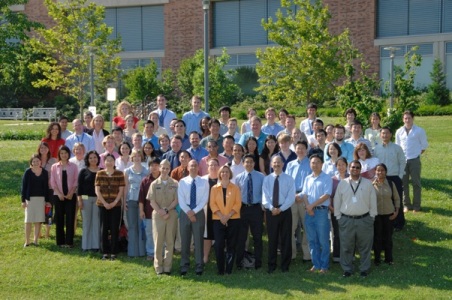Our Science – POB Website
Pediatric Oncology Branch

|
Research
Please visit the http://home.ccr.cancer.gov/oncology/pediatric/">Pediatric Oncology Branch (POB) website for additional information on current clinical trials, patient referral procedures, the Pediatric Hematology/Oncology Fellowship Program, and a Virtual Tour of the POB.
The POB is dedicated to the study and treatment of childhood cancer. During the past decade, there has been considerable progress in understanding fundamental processes in the pathogenesis of pediatric cancers. New insights in the cell biology and molecular genetics of specific cancers have led to new targets for therapy. At the same time, advances in immunology are providing reagents capable of regulating immune function or altering host-defense systems in ways that may permit the use of current cytotoxic regimens in more rational and tolerable schedules and formulations, as well as the development of combined modality therapy utilizing both cytotoxic therapy and immunotherapy. The Pediatric Oncology Branch has developed a close partnership and collaboration between basic and clinical scientists involved in studying pediatric oncology, immunology, genetics, and supportive care. Efforts are focused along several themes:
- Utilization of the tools of molecular and tumor biology to improve the diagnosis, classification, treatment, and outcome of childhood cancer. The integration of advanced technology approaches designed to detect specific "fingerprints" of pediatric tumors as well as the detection of specific mutations are major goals of all clinical studies and will allow the branch to become a model of translational clinical research.
- Development of new treatment strategies based upon laboratory findings of clinical interest as well as testing new agents (i.e., phase I and phase II clinical trials) that might eventually be integrated into front-line chemotherapy regimens. We evaluate principles of therapy (e.g., "therapeutic window", combination immunotherapy and chemotherapy) for tumors that have been shown to be refractory to current therapies. We also study the role of specific biologic therapeutics and combinations (for example, combination IL-2 plus IL-12) as they specifically relate to pediatric tumors.
- Pursuit of strategies to decrease the complications of cancer therapy, particularly the infections associated with neutropenia in cancer patients and the immunologically compromised host, in order to modulate or improve altered host-defense systems and permit the delivery of effective treatment.
This page was last updated on 8/29/2008.

